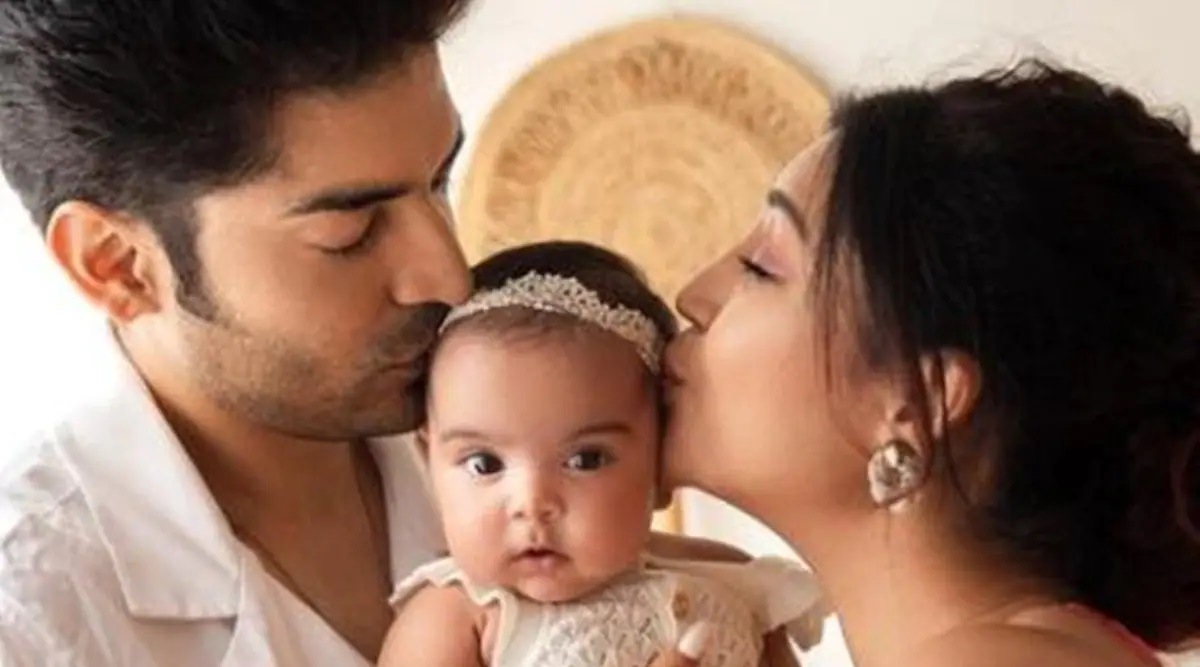 Once the mother has crossed the post-partum period all her organs, including the reproductive ones, snap back to their original size and shape. Ovulation starts too and she can bear a child again, explains Dr Monika Wadhawan(Photo: Debina/Instagram)
Once the mother has crossed the post-partum period all her organs, including the reproductive ones, snap back to their original size and shape. Ovulation starts too and she can bear a child again, explains Dr Monika Wadhawan(Photo: Debina/Instagram)Recently, television actor Debina Bonnerjee, who is documenting her motherhood journey on social media, declared that she had become pregnant within six months of delivering her first child through IVF (in-vitro fertilisation). She believed it was because she was not breastfeeding her child. Turns out her logic was completely wrong. “It is quite normal for even breast-feeding mothers to become fertile within six to eight weeks of delivery and conceive a second child,” says Dr Monika Wadhawan, Senior Consultant, Department of Obstetrics and Gynaecology, Fortis, Noida.
“Once the mother has crossed the post-partum period, also called puerperium, which is about four to six weeks, all her organs, including the reproductive ones, snap back to their original size and shape. Ovulation starts too and even though she may not get periods because she is breastfeeding (high levels of a hormone called prolactin boost breast milk and depress oestrogen, which could suppress the menstrual cycle), she can bear a child again. That’s why we always advise contraception to a new mother after six weeks, lest she lands up with an unwanted pregnancy. The chances are less because she is lactating, which means her body doesn’t allow her to take on another load while tending to her baby, but they are there all the same,” adds she.
So, ovulation is the key here, regardless of whether your menstrual cycle resumes or not. “If you’re not using contraception, it is impossible to determine your odds of getting pregnant after giving birth. That’s because every woman’s body is different and the period of her first postpartum ovulation can fluctuate on a case to case basis,” says Dr Wadhawan.
Nursing mothers have been known to begin their periods as early as six weeks postpartum or as late as 18 months after giving birth. “If your baby only depends on your breastmilk for nutrition, requiring you to feed him/her at regular intervals, then ovulation can get delayed. But if you are supplementing with formula milk or are not producing enough milk, your body can resume ovulation and even periods,” according to the doctor. Hormones fluctuate during breastfeeding as your body tries to find its new normal. As your hormones fluctuate, your periods may as well.
Subscriber Only Stories
So how long should a woman wait before getting pregnant and after giving birth? “Ideally you should be very mindful about spacing out your next child and should not get pregnant before 18 months if you want to focus on the infant who needs you most at this time,” says Dr Wadhawan. Conceiving within 18 months of giving birth is not without risks. “The second child may run the risk of arriving early and suffer from low birth weight. His/her healthy development may be impaired because the mother’s body may have just about collapsed to being normal but is not ready to build its defences all over again in such a short time. Even assuming that all low-gap children won’t be unhealthy, the real question mothers should ask is if they can overburden themselves even more. If not, they need contraception early,” says Dr Wadhawan.